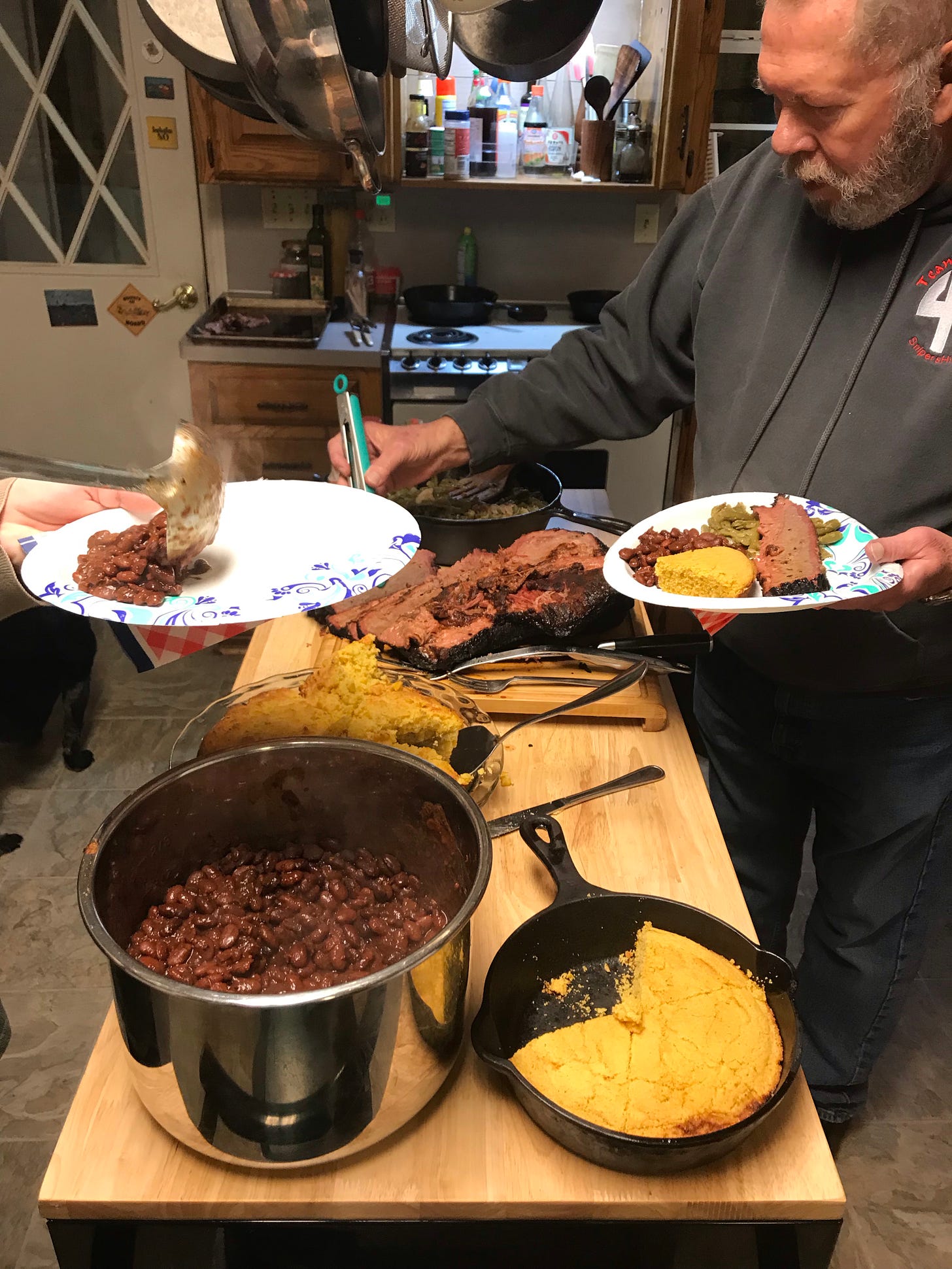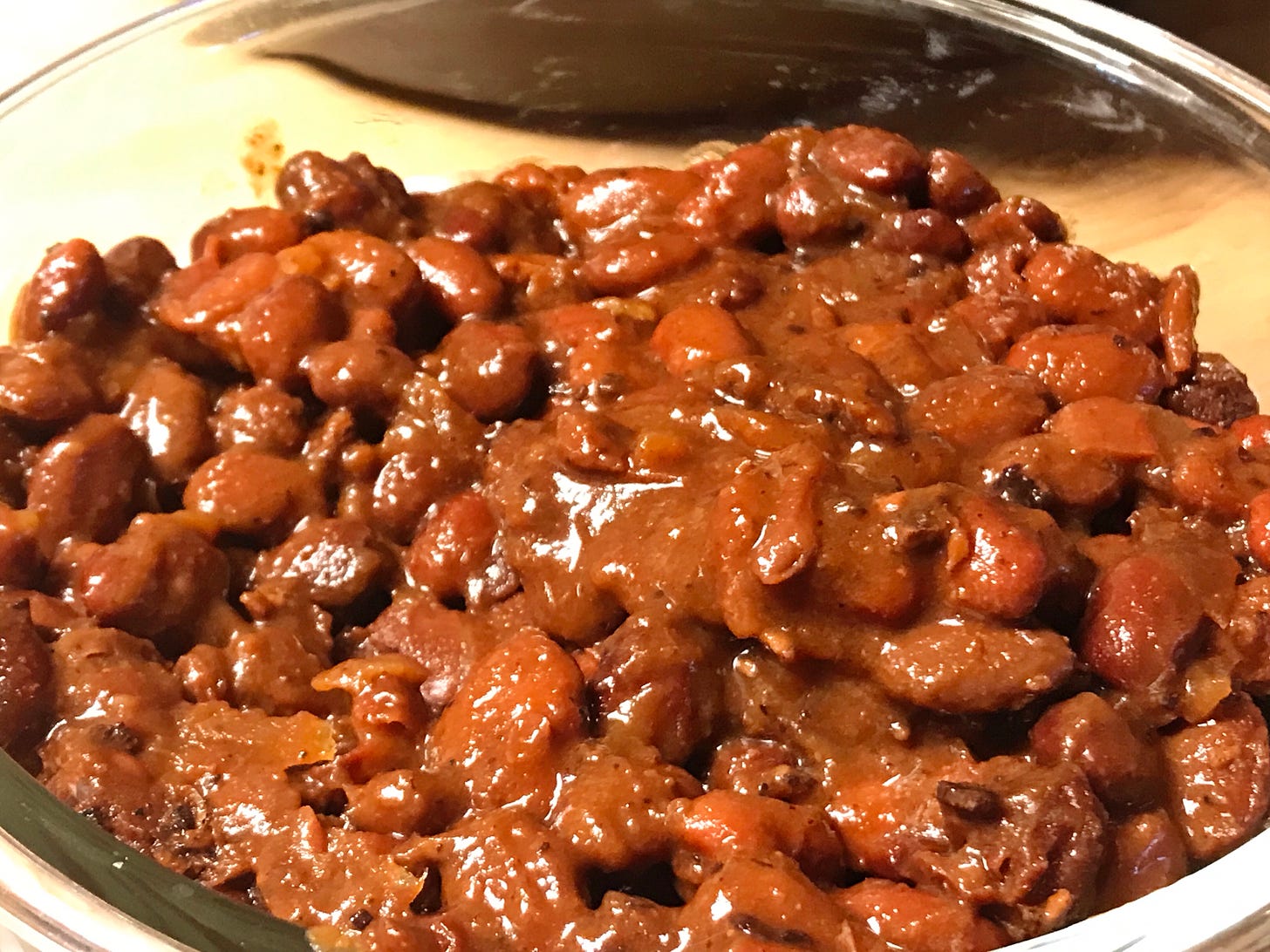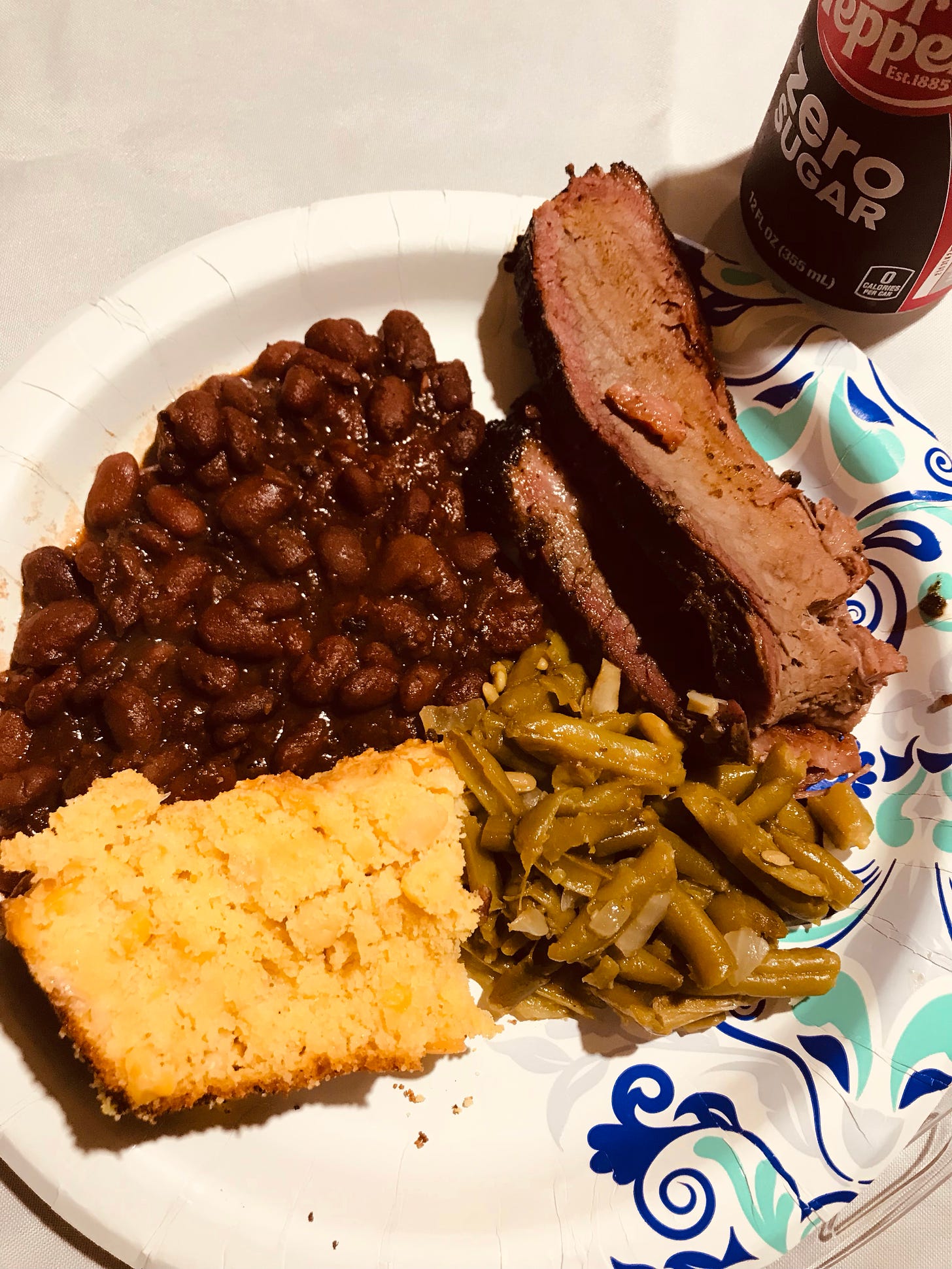Baked Beans
I smoked a brisket for the group dinner, something I don't do often, and as I like to do when I do manage this sort of thing, I made a pan of baked beans to soak up the yummy drippings.

Baked beans, cornbread, brisket, and green beans. A hearty meal!
You could, certainly, make up these beans without the smoker involved. Most of the cooking on mine was done once they came back inside, actually. But they do pick up amazing flavor if you use them to catch the fat and flavor from the smoking meat. With a bonus of keeping the inside of your smoker or grill easier to clean up!
This recipe makes about 6 quarts of beans - enough to feed a crowd, or have leftovers to freeze if you want. It's easy enough to cut it in half, and make a family-size portion instead of feeding-15-people-if-not-more!
2 lbs dry beans
1 large or 2 med onions, diced finely

Baked beans! You will know they are done when they aren't white at all, but have fully absorbed the sauce and become a uniform deep red-brown color.
1/2 c honey
1 c brown sugar
1/2 c BBQ sauce (or ketchup, or a couple tablespoonfuls of tomato paste)
4 tsp dry powdered mustard
1 tsp mustard seeds
3 tsp salt
1 tsp liquid smoke
1/2 chopped cooked bacon
Water as needed
This made a slightly less sweet version of baked beans than the popular brands you get in a can. And it's easy to vary the ingredients to hit the flavor you like - molasses, honey, maple syrup...
First, sort out your beans on a towel or flexible cutting board to remove any small stones. Then pour them into a large bowl. Rinse, then fill the bowl nearly to the top with water, covering the beans with plenty of room for them to expand. Allow to soak overnight. I used pinto beans for this batch, but Navy beans work well too.
Pour off any excess liquid in the morning, and rinse again. Put your beans into the vessel you plan to cook them in - I find an aluminum roaster or lasagna pan allows a good fit into the bottom of my grill, with the bonus that the pan is bendable for a snug fit if needed. In a separate bowl, combine the sauce ingredients thoroughly. Mix this into the soaked beans to coat, then add about 6 cups of water. Monitor the beans as they cook, they will likely need more water as time goes on.
Cooking a pan of beans under your brisket is a good way to stabilize the heat swings, as well as catching the drippings. Since I am currently using a charcoal and wood smoking system, this is very helpful. Keep an eye on them - stir them if you can - and add water a cup at a time if they start to dry out.
I brought in the brisket after 5 hours of smoking. A manual smoking system requires attention every 20-30 minutes (I have a wee little firebox) and I wasn't able to get the temp above 200F reliably. The beans came in, and went into the slowcooker on high, uncovered, for another 5 hours. As I pulled the brisket out of the oven to rest, I decided the beans were not soft enough - the First Reader prefers them velvety smooth - so I transferred them to the instantpot. I cooked them under pressure for 30 minutes, with a ten min natural release, then quick release of pressure. I allowed them to cook uncovered for another 30 minutes until serving, to drive off any excess moisture.
This is a little more complex cooking than most will want to do, I realize. The same effect could be had by cooking overnight in the slowcooker - covered, to avoid the possibility of drying and burning - with 8 cups of water rather than 6 to start. Or you could do this with 90 minutes under pressure in the instantPot, like I've done with soup beans in the past. You might increase the liquid smoke to 2 tsp if you're cooking it indoors. Oh, and cook the bacon, adding all the fat from that, rather than adding in pre-cooked bacon crumbles (bacon bits) at the start.

Country cooking, slow food, whatever you call it, it's delicious!




